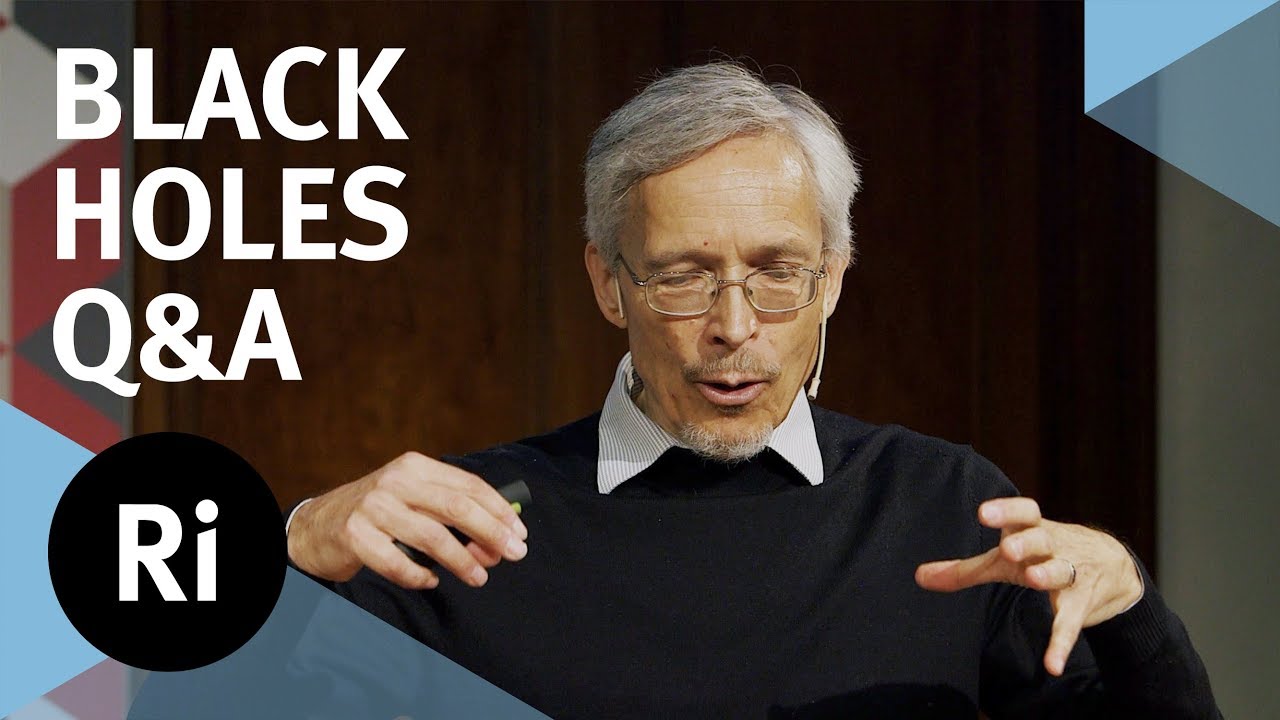The Royal Institution
How are worm holes created? What’s the current thinking around black hole creation and dark matter? Chris Impey answers audiences questions following his talk.
Buy Chris’ book “Einstein’s Monsters: The Life and Times of Black Holes” : https://geni.us/NL3M8Hu
Watch the talk: https://youtu.be/roM1QPr8lNo
Chris Impey is a University Distinguished Professor and deputy head of the astronomy department at the University of Arizona. His research has been supported by $18 million in grants from NASA and the National Science Foundation, and he has had 24 projects given time on astronomy’s premier research facility, the Hubble Space Telescope.
This talk was filmed in the Ri on 9 May 2019.
—
A very special thank you to our Patreon supporters who help make these videos happen, especially:
Andrew McGhee, Dave Ostler, David Lindo, David Schick, Erik Shepherd, Greg Nagel, Ivan Korolev, Joe Godenzi, Julia Stone, Lasse T. Stendan, Lester Su, Osian Gwyn Williams, Paul Brown, Radu Tizu, Rebecca Pan, Robert Hillier, Robert Reinecke and Roger Baker.
—
The Ri is on Patreon: https://www.patreon.com/TheRoyalInstitution
and Twitter: http://twitter.com/ri_science
and Facebook: http://www.facebook.com/royalinstitution
and Tumblr: http://ri-science.tumblr.com/
Our editorial policy: http://www.rigb.org/home/editorial-policy
Subscribe for the latest science videos: http://bit.ly/RiNewsletter
Product links on this page may be affiliate links which means it won’t cost you any extra but we may earn a small commission if you decide to purchase through the link.
Source



u must b fun at parties
jokes on u pal I don't get invited to parties
Quantum physics in reality.
Splitting imagine of professor Lawrence from Texas.
Electric charge is involved gravity, wake up scientist.
Bank about the great attractor, it's a black hole that that has swallowed it's own galaxies!
I love that Impey takes the young peoples' questions just as seriously as the adults', doesn't even modulate his tone of voice.
What an amazing science speaker. Such an easy, smooth, layman explanation of such complex topic. Great Job.
What is are dimensions of a black hole
This man is so kind and so intelligent
Our modern cosmology has become too much esoteric. Too many nonsensical conclusions are being accepted with no solid evidences and no chances left to independent and “ eretic “ scientists to falsify current theories accepted by the “ mainstream “. I have seen simple calculations that assuming the constant angular momentum of a star demonstrate that enormous centrifugal forces could prevent a collapsing star from becoming a BH. Nobody among the most famous cosmologists demonstrates that these simple calculations are wrong!
Oratory skills: 10/10. Which makes mr Impey, along with his knowledge of the universe, genuinely interesting to listen to. Thank you.
The bigger black hole the lower density. It is so easy to imagine that our universe is an insides of some black hole. The light in our universe will travel forever the same way the light would travel in a black hole and never leave it. You will think your "universe" is infinite because it takes infinite time for your light to get to the edge of a black hole. The blackhole is the universe for inner creatures.
Gravity is mass. Not density. Please explain why gravity goes to infinity in black whole. It's mass stays the same. Just density changes.
What a great talk! And I would have loved to ask Prof. Impey some questions, like:
– why are the small (e.g., tennis ball-size) black holes not considered an option for dark matter?
– is there a specific standard number for the size of a black hole compared to the size of the space around it which it affects or dominates? (I assume the large black hole in the center of the Milky Way affects only a small percentage of our galaxy?)
Anyone?
I clicked on the lecture and thought I'd watch a few minutes but I've stayed for the coffee and cake.
Damn fine showing. Bravo. The talk and Q and A were both excellent.
I occasionally tend to get exasperated by some lecturers failure to address a point properly, sometimes leaving common misconceptions uncorrected. That never happened throughout.
Splendid talk.
11:36 Very good question…
If a black hole keeps evaporating, then it’s total mass will decrease. At some point, the mass will dip below a value where the event horizon disappears and it stops being a black hole. Does it revert to a neutron star then?
Is a black hole a globe or a tube. It must be spherical because if not, we won't see it as always round.
Therefore, isn't it more likely that if we fall in, it will be heading towards it's centre rather than into a tube which narrows to a singularity like what you said.
My question please :
The future civilisations would love to huddle around a black hole and tap its gravity for energy, but how would we find them?
Maybe due to our brilliant future tech and gravity scanners etc
Chris Impey is by far my favourite physicist and explains so much in clear detail, thankyou
Space is void yet the parrlce field, mass enegy you can not create of destroy. Dark Energy has an event horizon projection in particle field. Gravity waves are beyond light? Reacting to what?
Yeah and another question. If protons had generally decayed by year 10e50 what would the future civilisation consist of? Or can we just assume they would re-replicate their bodies and machines out of energy at that point?
Top notch lecture and Q & A. As a species we are brilliant, and yet what this shows us, is that we need to approach these questions with humility and gentle curiosity. Our vocabulary has not yet arrived at a level to describe the realities and phenomenon we observe. To paraphrase Socrates: "The only thing I know, is that I don't know anything". 2500 years have passed and it is still true. We have not as yet, ripped away the veil of awesome revelation from the secrets of the Universe. Perhaps we should be satisfied to gently peel away one layer of the "Cosmological Onion" at a time. And, the questions from the younger members of the audience, were equally as pertinent and brilliant as anyone else. Bravo and thank you Dr. Impey. Your lecture has quickened my dull mind once again.
It is counterintuitive to me that compressing matter into a black hole would somehow increase its gravitational pull. Assuming this is true, the amount of matter alone doesn't determine the amount of gravity it creates. For example, a proton inside a rather large star has some gravitational pull but if the star turns into a black hole, that same proton creates more gravity. How is that?
Great video thank u for sharing